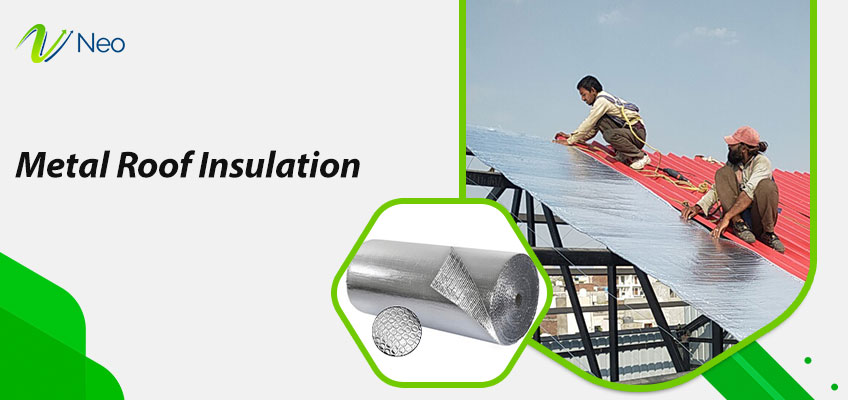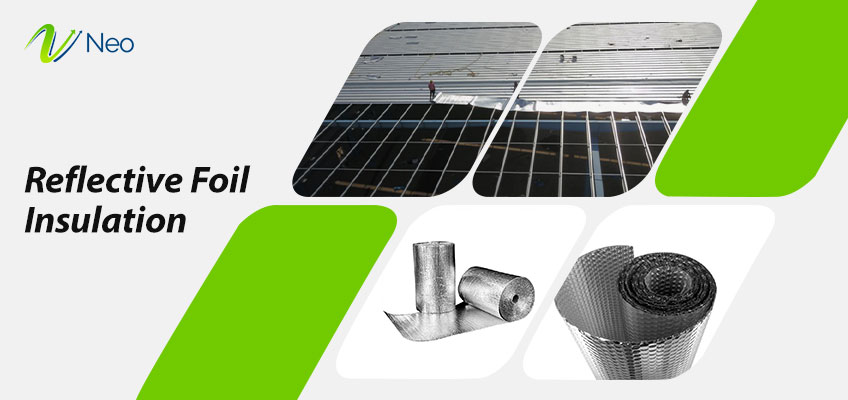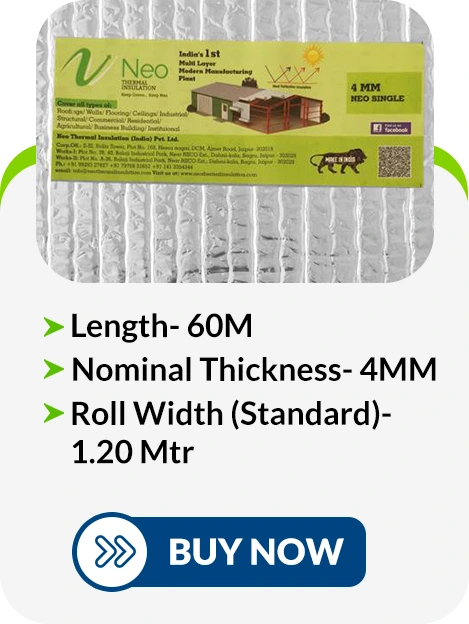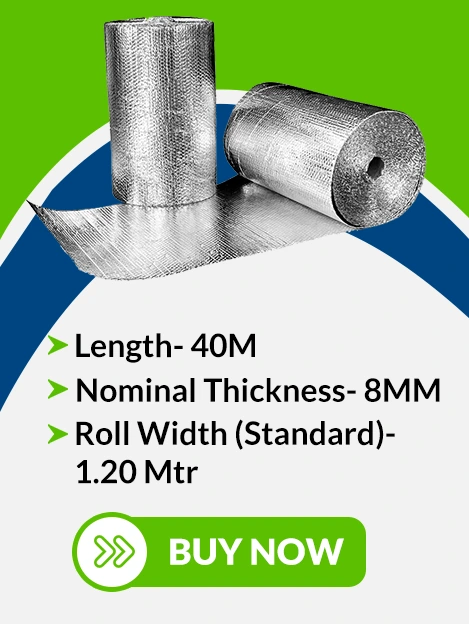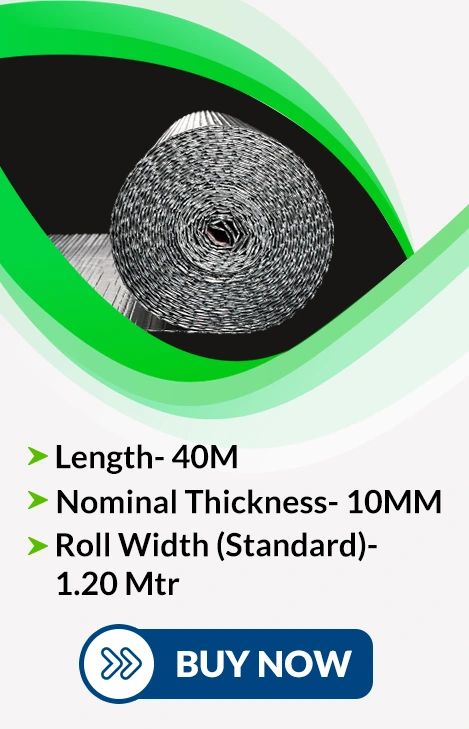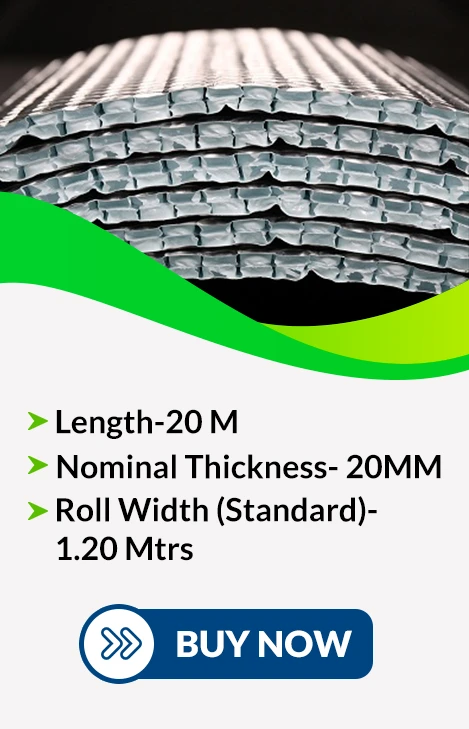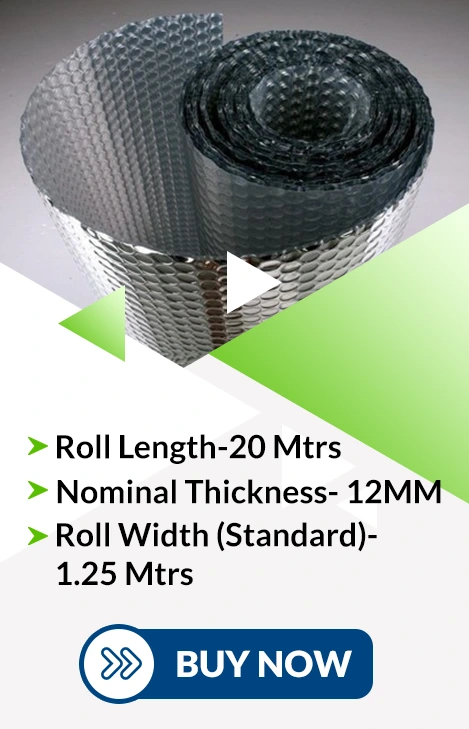Metal Roof Insulation: Panels, Benefits, Types, and Uses
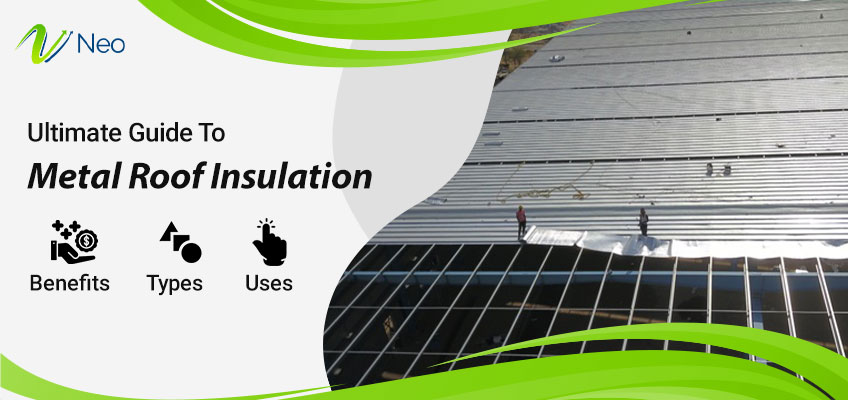
Are you considering metal roof insulation for your property? Installing a roof insulation sheet is a crucial aspect of metal roofing projects. The surge in popularity of metal roofing among property owners is largely due to its durability and longevity. However, the significance of proper insulation for metal roofs is often overlooked. Implementing effective metal roofing insulation can significantly enhance the energy efficiency and overall comfort of your building.
This blog will cover everything about metal roof insulation panels related to its significance, advantages, types, and materials. For a cost-effective and comfortable home or work environment, knowledge of metal roof with insulation is significant whether its a new metal roof or you are upgrading your present metal roof.
So, let’s start our discussion about metal roof insulation and various other aspects involved in metal roof insulation panels.
What Are Metal Roof Insulation Panels?
Metal roof insulation panels are a layer of material installed to balance temperature and lower energy usage between a metal roof and a building structure. It also acts as a thermal insulation material, that will limit heat transport and control condensation problems. This type of insulation is necessary for homes and businesses since it creates a comfortable interior for individuals and is affordable for heating and air conditioning.
Metal Roof Insulation Market
The global market for metal roofing was worth $23.8 billion in the year 2020. It is expected to climb to $33.5 billion by the year 2030, with a steady compound annual growth rate (CAGR) of 3.5% between 2020 and 2030. This growth can be attributed to its widespread use in various sectors such as industrial and commercial, among others. Moreover, the expansion of infrastructure in developing nations, coupled with favorable governmental regulations, is driving the demand for metal roofing.
Why do we need a Metal Roof With Insulation?
It is significant to insulate a metal roof due to various reasons. It improves energy efficiency by helping to lower heat gain in the summer season and heat loss in the winter season. This finally leads to lower energy bill amounts and a reduced carbon footprint. In addition, metal roof insulation reduces the buildup of condensation inside the building, thereby protecting the structural integrity of the building and ensuring good indoor air quality. Thirdly, it improves the quality of the living or working space by regulating the environment, ensuring pleasant temperature levels and minimal noise from the surroundings.
Insulate Your Roof With Metal Roof Insulation And Saves Your Energy Bills!
What are the benefits of Metal Roof Insulation?
1. Energy Efficiency
By acting as a thermal barrier, metal roof insulation reduces the need for excessive utilization of heating and cooling systems hence reducing energy bills and environmental pollution. This translates to substantial future savings on the environment, as well as energy.
2. Condensation Control
Insulation reduces condensation, which could cause structural damage and mold growth, leading to a long-lasting roof. The structural integrity keeps your building intact and saves you on expensive repairs.
3. Comfort
The metal roofing with insulation ensures a comfortable indoor temperature due to good thermal regulation and noise insulation of outside elements. The place in which you stay is cool during summer and warm during winter, leading to comfortable living and working conditions
4. Longevity
Good thermal insulation of the metal roofing house saves it from huge temperature changes, thus prolonging the life span of the roof. Heat insulation minimizes the expansion and contraction, thereby reducing friction and prolonging the lifespan of your roof as well.
5. Cost Savings
The savings on energy costs and reduced maintenance make it a very economical alternative in the future. Over time, you’ll get back your first investment by way of reduced energy bills and fewer repairs.
Read Also: Types of Warehouse Insulation Materials: Which is the Best for Your Space
Types of Metal Roofing Insulation
Let us explore the metal roof insulation options briefly by going through their key types. Some of the types of metal roofing insulation are discussed as follows:
Fiberglass Batt Insulation
These come in rolls or batts and are one of the most common choices, offering excellent thermal performance. Fiberglass batts provide efficient insulation by trapping air and preventing heat transfer. They are affordable and easy to install.
Spray Foam Insulation
Provides an airtight seal and is highly effective at preventing heat transfer and air leakage. Spray foam insulation creates a seamless barrier, filling gaps and preventing air infiltration, resulting in exceptional thermal efficiency.
Rigid Board Insulation
It is suitable for commercial buildings as these boards are highly resistant to moisture and provide high R-values. Rigid board insulation is dense, providing exceptional thermal resistance and protection from moisture, making it suitable for various purposes.
Reflective Foil Insulation
The reflective foil insulation is one of the major types of metal roof insulation. It Reflects heat away from the roof and offers excellent results for hot climates, reducing cooling costs. Reflective foil insulation uses a reflective surface to reflect heat away, decreasing the amount of heat absorbed by the roof and lowering cooling costs. It’s particularly effective in those regions which have hot and sunny climatic conditions.
Loose-Fill Insulation
This type of metal roofing insulation comprises loose fibers or pellets. It is perfect for irregular spaces. Loose-fill insulation is versatile, as it can be blown into various smaller and unnoticeable parts, filling all the irregular spaces and gaps to provide uniform thermal protection.
Aerogel Insulation
This advanced insulation material is highly advantageous such as it is lightweight, offering superior thermal performance. Aerogel is a unique, lightweight material with exceptional thermal properties, providing high insulation values while maintaining its thin and space-saving feature.
Read Also: Types of Materials for Sound Insulation for buildings
Different Types of Materials for Metal Roofs
1. Steel
Steel metal roofing is known for being economical and durable as its main component. Steel is robust and highly durable and this makes it convenient for various uses, especially in high-risk weather areas.
2. Aluminum
Aluminum is resistant to corrosion and lightweight suitable for coastal areas. It is resistant to corrosion and light enough for humid places or near oceans.
3. Copper
Copper is known for its looks and it can last many years without fading away, and it develops a beautiful patina. These copper roofs are known for their distinct looks and the natural patina that eventually gives the building more life.
4. Zinc
Zinc roofs require lesser maintenance and have a life span of over a century. Zinc roofs require little maintenance and they last for ages. Hence it can be considered as one of the affordable options.
5. Galvalume
Galvalume is a combination made out of steel and aluminum giving the most effective mixture of stability and corrosion resistance. Galvanized steel is mixed with aluminium, producing a sturdy corrosion-resistant metal.
6. Color-Coated Steel
These are different colour options to ensure they not only offer an aesthetic feel but deliver on their role as roofs. Steel colour-coated roofing sheets offers visual appeal plus steel’s durability and strength giving you a wide selection of colours to work with and choose what you like.
Factors to be Consider for Metal Roofing Sheets
However, when selecting metal roofing sheets, some factors need to be considered. Material selection is influenced by climate first. For example, in salty coastal areas, they use corrosion-resistant materials such as aluminium or copper. Inland steel might work fine. Another important thing to consider is your budget. Copper is a good example of a high-quality material that may be relatively expensive as compared to steel and alumin.
The materials that you choose should also take into account one’s aesthetic preference because some materials such as copper acquire a distinct patina with age, while others like colour-coated steel are available in several varieties and colours to complement one’s design
The demands for maintenance are different with each of the materials and hence, it is advisable to look at your capability to preserve the roof for a long period. Finally, get advice from a roofing contractor to see that the chosen material will fit well to your building structure and climate as well as follow the local building code and regulations.
Schedule Your Insulation Installation Today!
Why Choose Neo Thermal for Metal Roof Insulation?
The selection of the right partner for your metal roofing insulation is very important. Neo Thermal Insulation gives you tested and proven best-performance insulation systems that are energy-efficient and eco-friendly. Our knowledgeable team has extensive experience with a wide range of insulation types that are made of different materials, thus you will get the most suitable one for your situation. Our goal is to provide you with maximum comfort and economical expenditure while remaining environmentally friendly. You can always count on Neo Thermal for high-quality results in your project, which will result in long-term satisfaction and benefits.
Conclusion
Metal roof insulation is an important piece towards increasing energy efficiency, comfort, and longevity in your building. This has the advantage of saving energy, avoiding condensation, and making it more comfortable. As a result, it is wise to understand the different types of insulation materials and the roofing materials that are essential in creating an appropriate environment at reasonable amounts. Choose metal roofing sheets considering climate, affordability, aesthetics, and maintenance, and consult a professional. Making the right choice of partner such as Neo Thermal will ensure successful and long-lasting comfort and environmental friendliness of the outcomes.
Frequently Asked Questions
1. What is Metal Roof Insulation?
It refers to laying down the metal roof insulation which functions as a temperature regulator and reduces energy output. It acts as a vapor insulator and thus acts as a thermal barrier that prevents heat transmission and condensation issues. Insulation of both residential and industrial buildings is important as it provides a conducive environment inside and reduces heating, ventilation, and air conditioning (HVAC) operation costs.
2. What is the best insulation for metal roofs?
The best insulation for metal roofs depends on certain factors, including climate, budget, and specific needs. Common insulation for metal roofing includes fiberglass batts, spray foam, and reflective foil insulation. For determining the best choice, consider your location, budget, and the desired R-value, which measures the effectiveness of roof insulation.
3. What are the benefits of metal roof insulation?
There are various benefits of metal roof insulation including improved energy efficiency, condensation control, enhanced comfort, extended roof longevity, and long-term cost savings. Insulation reduces heat transfer, lowers energy bills, prevents condensation-related damage, maintains indoor comfort, and extends the lifespan of the metal roof.
4. What are the types of Materials for Metal Roofs?
Different materials can be used for metal roofing, including aluminum copper, steel, zinc, galvalume (a blend of steel and aluminum), and color-coated steel. Each metal roofing insulation material has its distinctive characteristics, such as durability, moisture resistance, and aesthetics. Choosing the material for metal roof insulation depends on factors like geographical location and design preferences.
5. How does metal roofing perform in different weather conditions?
Metal roof insulation is known for its durability as it can perform well in various weather conditions. In hot climates, reflective metal roofs help decrease cooling costs by reflecting heat. In snowy regions, metal roofs shed snow easily, preventing heavy accumulation. Properly installed and insulated metal roofs can withstand extreme weather conditions and provide long-lasting protection for your property.
